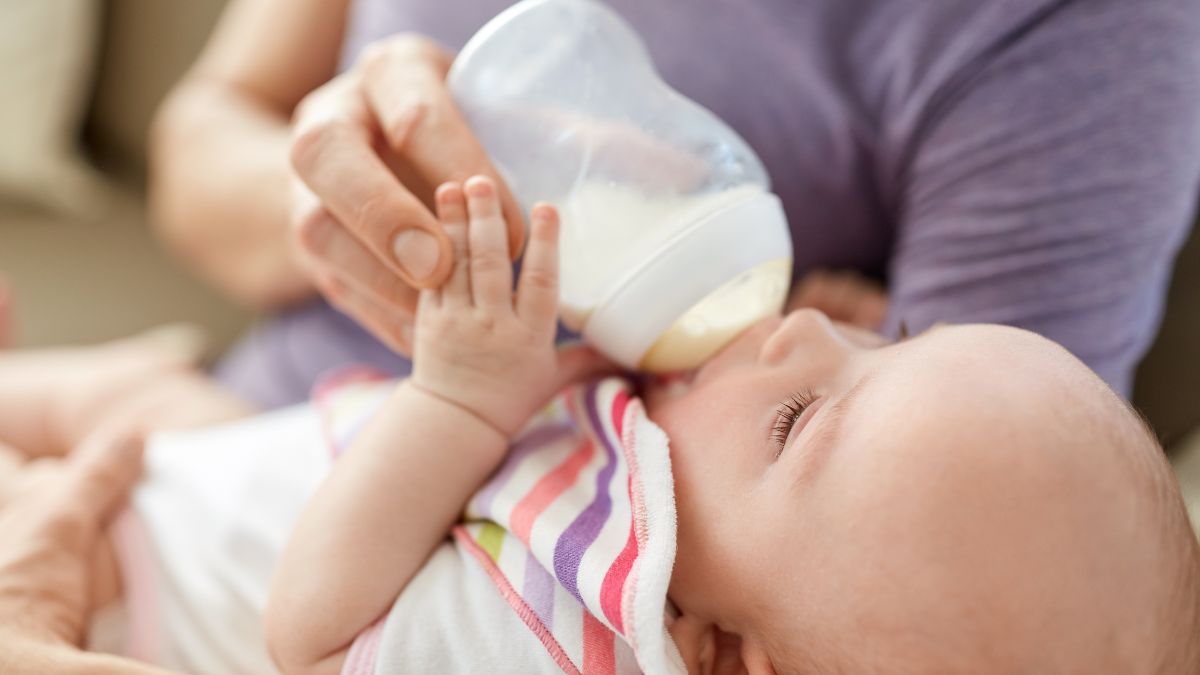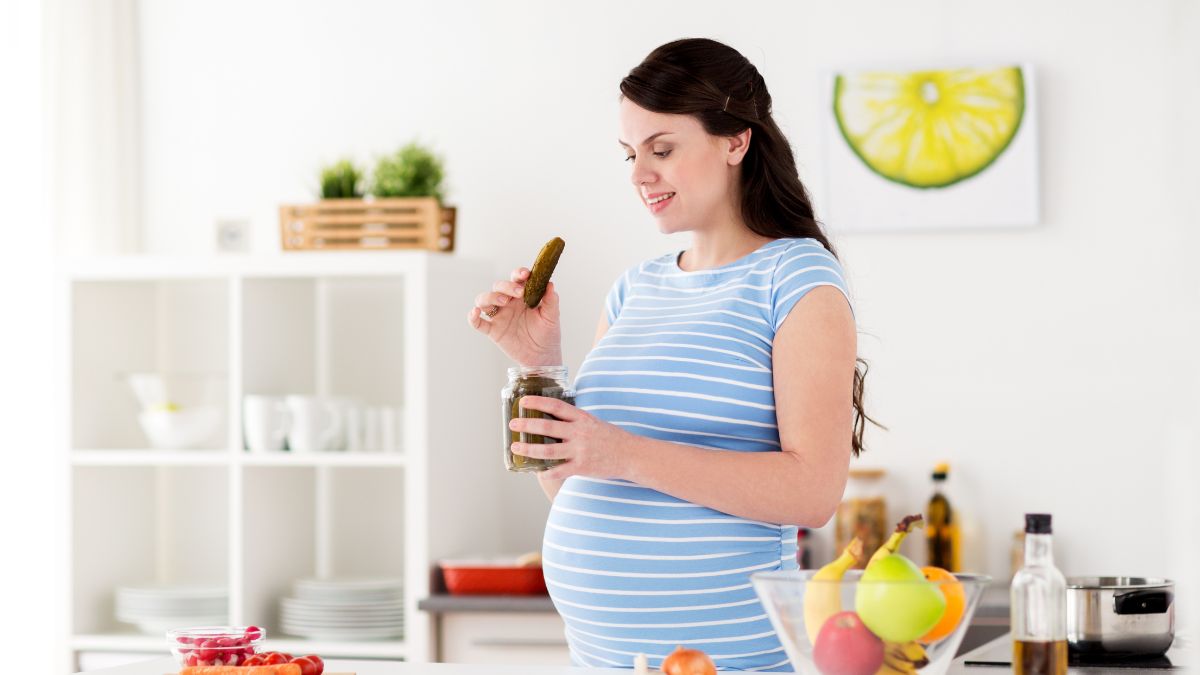As parents, we strive to provide the best care and nutrition for our little ones. However, despite our best efforts, sometimes things don’t go as planned.
One of the concerns that can arise is the possibility of feeding our baby spoiled formula.
While it may not be common, knowing the signs and symptoms that may indicate your baby has consumed spoiled formula is essential.
In this comprehensive guide, we’ll walk you through everything you need to know about recognizing these symptoms and taking appropriate action.
From understanding the potential effects of spoiled formula on infants to learning how to identify warning signs, we’ll equip you with the knowledge and confidence to ensure your baby’s health and well-being.
Let’s dive in!
What Constitutes Spoiled Baby Formula?
Before we delve into the symptoms of feeding a baby spoiled formula, it’s essential first to understand what spoiled baby formula is.
Typically, there are two main categories of spoiled formula.
The first category involves formulas prepared for later use—whether kept at room temperature or refrigerated. The second type of spoiled formula refers to the leftover formula a baby has already started consuming.
- Prepared Formula: Parents often prepare formulas in advance for convenience, such as for night feedings or road trips. While this practice isn’t harmful, knowing that such a formula can only last for 2 hours at room temperature is crucial. If refrigerated, it can last up to 24 hours. Beyond these timeframes, the formula should be discarded.
- Leftover Formula: The leftover formula that your baby partially consumed falls into this category. It’s common for parents, particularly new ones, to unknowingly keep this until the next feeding time. However, this is not advisable. Any remaining formula should be discarded 30 minutes after feeding because it’s already been exposed to the baby’s saliva, which can introduce microbes like viruses and bacteria.
Remember: A baby’s formula left at room temperature for over 2 hours is considered old or spoiled and should be discarded.
Recognizing Spoiled Formula in Babies: The Symptoms
When a baby consumes spoiled formula, they may exhibit one or more of these spoiled formula symptoms. These signs are the body’s way of eliminating the spoiled formula.
Here’s a list of key symptoms to watch for:
- High Fever: Fever is often the body’s response to fighting off an infection. When harmful microbes or foreign substances enter the body, the immune system raises the body’s temperature to combat the pathogens.
- Stomach Pain: Spoiled formula can cause stomach pain in babies, which may persist even after a bowel movement.
- Vomiting: Repeated vomiting is another sign that your baby may have consumed spoiled formula. This is the body’s way of eliminating the harmful substance.
- Diarrhea: Watery stool and frequent bowel movements indicate that your baby may have ingested contaminated food or drink.
If your baby exhibits any of these symptoms, it’s crucial to discontinue feeding them the suspected spoiled formula and seek medical attention.
The Duration of a Prepared Baby Formula’s Freshness
Prepared baby formula is advisable to be consumed within two hours from preparation.
After this period, the formula may no longer be safe for your baby. The safest time to feed your baby formula is immediately after preparation.
Mixed Baby Formula: How Long Is It Good For?
Once mixed, prepared baby formula remains safe for 2 hours at room temperature. However, if refrigerated, it can last up to 24 hours.
The formula should be discarded past these timeframes as it is now considered spoiled.
Baby Formula After the Baby Starts Drinking: How Long Is It Good?
Once your baby starts drinking from a bottle of formula, the leftover formula is only good for 30 minutes.
It should be discarded if your baby doesn’t finish it within this time.
Can You Reheat or Rewarm Baby Formula?
If your baby didn’t consume the entire bottle of prepared formula, you could reheat it once before giving it to your baby.
However, avoid using a microwave since it can promote the growth of bacteria.
If your baby drank from the bottle and there’s formula left over, do not reheat it or give it to your baby again. It should be discarded.
Powdered Baby Formula: Can It Go Bad?
Yes, powdered baby formula can indeed go bad. Typically, it expires after a month of opening the container. It also has a specific expiry date.
How Long Does Powdered Baby Formula Last?
The expiry date on the packaging will tell you how long your powdered formula will last.
Once you’ve opened it, it’s generally good for one month.
After this period, you should discard the remaining formula.
Can You Feed Your Baby Expired Formula?
According to the Centers for Disease Control & Prevention, feeding your baby formula past its expiration date is unsafe.
Even if it looks fine, it’s best to discard it to avoid any potential health risks.
Recognizing Spoiled Powdered Formula
Several signs can indicate whether your baby’s powdered formula has gone bad:
- Consistency: An old or spoiled formula tends to have a thicker consistency than a fresh one. If it has been sitting for a while, especially in hot weather, it may get curdled, and you might even see the water separating from the milk.
- Smell: Most baby formulas don’t have a pleasant smell, but you can still detect spoiled ones because they emit a rotten, sour aroma, similar to how cow milk smells when it spoils.
- Taste: If the baby’s formula looks and smells fine, but you’re still unsure, the next step is to taste it. If it has an odd taste, discard it.
- Preparation: If you struggle to mix the milk properly because the ingredients are separating, you may have used expired formula, which you should throw away.
- Baby’s Reaction: Observe your baby after feeding them. You might have given them spoiled formula if they usually feel fine after feeding but suddenly start experiencing diarrhea.
What to Do If Your Baby Drinks Old Formula
If you accidentally fed your baby spoiled formula, the first step is to observe their reaction before deciding on the next steps.
Healthy babies usually spit or poop out the spoiled formula without experiencing severe symptoms.
However, if your baby exhibits any of the above-mentioned symptoms, immediately take them to a doctor and monitor them closely.
Keep them hydrated; the symptoms should subside in a day or two.
Seek immediate medical attention if your baby shows severe symptoms like sunken eyes, reduced urination, or lethargy.
How to Prevent Feeding Your Baby Spoiled Formula
Here are some practical steps to prevent feeding your baby spoiled formula:
- Label your baby’s feeding bottles in advance: Include details like preparation and expiry times.
- Discard old or spoiled formula: It might seem wasteful, especially considering the cost of formula milk, but it’s better to be safe than sorry.
- Preparation and storage: Ensure you sterilize your baby’s feeding bottles and use filtered or boiled water for preparation. The area where you prepare and store your baby’s food should also be clean and disinfected.
- Feed fresh formula whenever possible: While it might be convenient to prepare formula in advance, it’s always safer to prepare a new bottle for your baby whenever you can.
- Store formula correctly: If you must prepare it in advance, store it correctly. Keep the formula in the refrigerator, away from other foods that can potentially contaminate it. Remember to cover the bottle well and label it clearly.
Following these steps can minimize the risk of feeding your baby spoiled formula.
Wrapping it Up
Parenting can be challenging, and it’s natural to make mistakes along the way. If you’ve accidentally fed your baby spoiled formula, don’t panic.
As we talked about before, most babies will not suffer severe effects from drinking spoiled formula.
However, it is essential to monitor your baby closely for any spoiled formula symptoms and seek medical help if they show signs of illness.
Remember, proper storage and prompt usage is the key to avoiding feeding your baby spoiled formula. If you follow these guidelines, your baby will be safe and healthy!
May the parenting be ever in your favor.
The information provided in this article is for informational purposes only and is not intended to be a substitute for professional medical advice, diagnosis, or treatment. Always seek the advice of your physician or other qualified healthcare provider with any questions you may have regarding a medical condition. Do not disregard or delay seeking professional medical advice because of something you read in this article.
References
- Centers for Disease Control and Prevention (2023, May 16). Infant Formula Preparation and Storage. Retrieved July 12, 2023, from https://www.cdc.gov/nutrition/infantandtoddlernutrition/formula-feeding/infant-formula-preparation-and-storage.html








